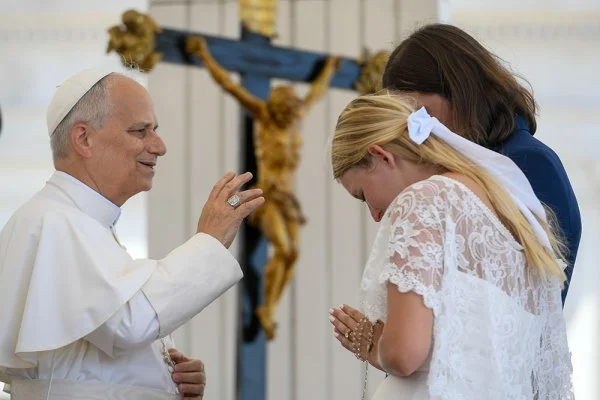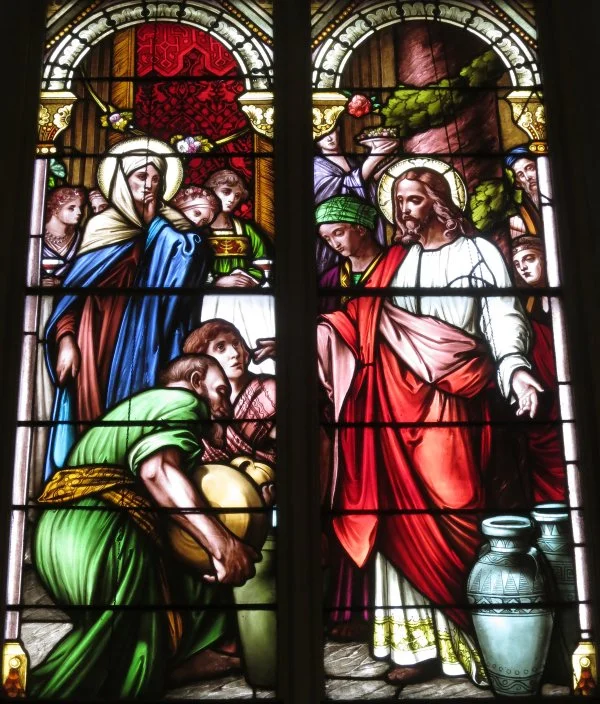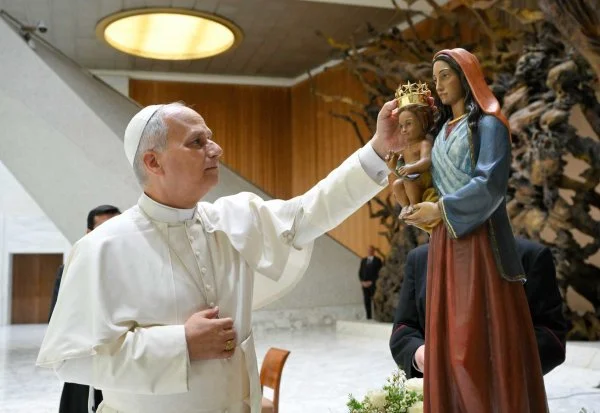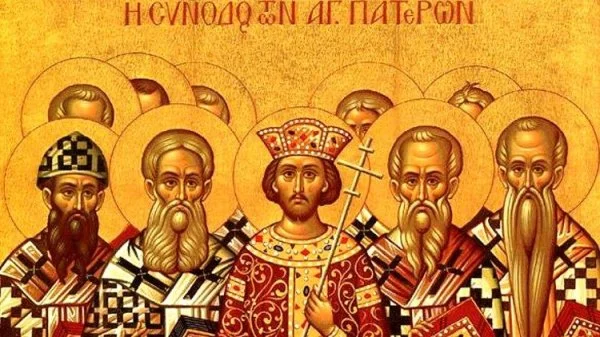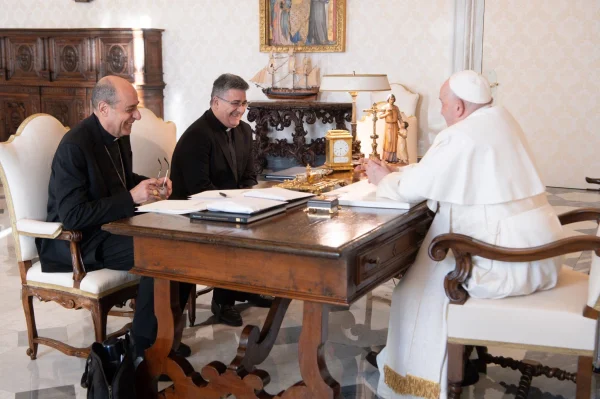- Français
- |
- Booklist
- |
- Week of Prayer
- |
- Links
- Areopagus - a forum for dialogue
- Academic journals
- Acronyms
- Bible tools
- Bibliographies
- Booksellers and publishers
- Churches
- Canadian church headquarters
- Directory of Saskatchewan churches
- Retreat centres
- Saskatchewan church and non-profit agencies
- Ecumenism.net Denominational links
- Anabaptist & Mennonite
- Anglican
- Baptist
- Evangelical
- Independent episcopal
- Lutheran
- Methodist, Wesleyan, and Holiness
- Miscellaneous
- Mormon
- Orthodox (Eastern & Oriental)
- Para-church ministries
- Pentecostal / charismatic
- Presbyterian & Reformed
- Quaker (Society of Friends)
- Roman & Eastern Catholic
- United and uniting
- Documents of Ecumenical Interest
- Ecumenical agencies
- Ecumenical Booklist
- Ecumenical Dialogues
- Glossary
- Human rights
- Inter-religious links
- Justice & peace
- Lectionaries
- Religious news services
- Resource pages
- Search Ecumenism.Net
- |
- Documents
- Ancient & Medieval texts
- Ecumenical Dialogues
- Interreligious
- Anabaptist & Mennonite
- Anglican
- Evangelical
- Lutheran
- Orthodox
- Reformed & Presbyterian
- Roman & Eastern Catholic
- United & Uniting
- Miscellaneous churches
- Canadian Council of Churches (CCC)
- Conference of European Churches (CEC)
- Interchurch Families International Network (IFIN)
- National Council of Churches in Australia (NCCA)
- Lausanne Committee for World Evangelism (LCWE)
- World Council of Churches (WCC)
- Other ecumenical documents
Church traditions
Documents from ecumenical agencies
- |
- Dialogues
- Adventist-Reformed
- African Instituted Churches-Reformed
- Anglican-Lutheran
- Anglican-Orthodox
- Anglican-Reformed
- Anglican-Roman Catholic
- Anglican-United/Uniting
- Baptist-Reformed
- Disciples of Christ-Reformed
- Disciples of Christ-Roman Catholic
- Evangelical-Roman Catholic
- Lutheran-Mennonite
- Lutheran-Mennonite-Roman Catholic
- Lutheran-Reformed
- Lutheran-Roman Catholic
- Mennonite-Reformed
- Mennonite-Roman Catholic
- Methodist-Reformed
- Methodist-Roman Catholic
- Oriental Orthodox-Reformed
- Orthodox-Reformed
- Orthodox-Roman Catholic
- Pentecostal-Reformed
- Prague Consultations
- REC-WARC Consultations
- Roman Catholic-Lutheran-Reformed
- Roman Catholic-Reformed
- Roman Catholic-United Church of Canada
- |
- Quick links
- Canadian Centre for Ecumenism
- Canadian Council of Churches
- Ecumenical Shared Ministries
- Ecumenism in Canada
- Interchurch Families International Network
- International Anglican-Roman Catholic Commission for Unity and Mission
- Kairos: Canadian Ecumenical Justice Initiatives
- North American Academy of Ecumenists
- Prairie Centre for Ecumenism
- Réseau œcuménique justice et paix
- Week of Prayer for Christian Unity
- Women's Interchurch Council of Canada
- World Council of Churches
- |
- Archives
- |
- About us
Archive for tag: Dicastery for the Doctrine of the Faith
Archive pour tag : Dicastery for the Doctrine of the Faith
The foundation of sacramental marriage is the unity of the spouses, a bond so intense and grace-filled that it is exclusive and indissoluble, said a document from the Dicastery for the Doctrine of the Faith.
The document, “‘Una Caro’ (One Flesh): In Praise of Monogamy. Doctrinal Note on the Value of Marriage as an Exclusive Union and Mutual Belonging,” was released today […] by the Vatican. Pope Leo XIV approved its contents Nov. 21 and authorized its publication.
… Read more » … lire la suite »

 Permanent link: ecumenism.net/?p=14694
Permanent link: ecumenism.net/?p=14694
Categories: CNS • In this article: Dicastery for the Doctrine of the Faith, marriage, polyamory, polygamy

 Lien permanente : ecumenism.net/?p=14694
Lien permanente : ecumenism.net/?p=14694
Catégorie : CNS • Dans cet article : Dicastery for the Doctrine of the Faith, marriage, polyamory, polygamy
Responding to recent questions raised by African bishops concerned about the practice of polygamy, the Vatican issued a sweeping defence of monogamy Tuesday, Nov. 25.
The 40-page doctrinal note “Una Caro (One Flesh): In Praise of Monogamy: Doctrinal Note on the Value of Marriage as an Exclusive Union and Mutual Belonging,” was issued […] by the Vatican’s Dicastery for the Doctrine of the Faith. It offers a far-reaching theological, biblical, and cultural reflection on the Catholic Church’s teaching that marriage is a “unique and exclusive” union between one man and one woman.
… Read more » … lire la suite »

 Permanent link: ecumenism.net/?p=14692
Permanent link: ecumenism.net/?p=14692
Categories: NCR • In this article: Dicastery for the Doctrine of the Faith, marriage, polygamy, Victor Manuel Fernández

 Lien permanente : ecumenism.net/?p=14692
Lien permanente : ecumenism.net/?p=14692
Catégorie : NCR • Dans cet article : Dicastery for the Doctrine of the Faith, marriage, polygamy, Victor Manuel Fernández
In Rome, on November 4—the memorial of Saint Charles Borromeo—the Dicastery for the Doctrine of the Faith released Mater Populi Fidelis, a doctrinal note that feels like a gentle breeze amid the stormy seas of ecumenical dialogue. More fully titled Doctrinal Note on Some Marian Titles Regarding Mary’s Cooperation in the Work of Salvation, this document is not just another Vatican pronouncement; it is a thoughtful, Scripture-soaked reflection that reins in exuberant Marian devotions while anchoring them firmly in the mystery of Christ. For some within the broader Christian family, especially Anglicans, this note arrives as a welcome affirmation. It conveys a balanced reverence for the Blessed Virgin, reminding us that ecumenism is not about compromise but about rediscovering shared truths.
… Read more » … lire la suite »

 Permanent link: ecumenism.net/?p=14682
Permanent link: ecumenism.net/?p=14682
Categories: News, Opinion • In this article: Co-redemptorix, Dicastery for the Doctrine of the Faith, Mary, Victor Manuel Fernández

 Lien permanente : ecumenism.net/?p=14682
Lien permanente : ecumenism.net/?p=14682
Catégorie : News, Opinion • Dans cet article : Co-redemptorix, Dicastery for the Doctrine of the Faith, Mary, Victor Manuel Fernández
It is “not appropriate” to refer to the Virgin Mary as “Co-redemptrix” because it obscures Christ’s exclusive role in the work of redemption, according to a new Vatican document.
“This title risks obscuring Christ’s unique salvific mediation and can therefore create confusion and an imbalance in the harmony of the truths of the Christian faith,” the document says. “When an expression requires many, repeated explanations to prevent it from straying from a correct meaning, it does not serve the faith of the People of God and becomes unhelpful.”
… Read more » … lire la suite »

 Permanent link: ecumenism.net/?p=14680
Permanent link: ecumenism.net/?p=14680
Categories: Tablet • In this article: Co-redemptorix, Dicastery for the Doctrine of the Faith, Mary, Victor Manuel Fernández

 Lien permanente : ecumenism.net/?p=14680
Lien permanente : ecumenism.net/?p=14680
Catégorie : Tablet • Dans cet article : Co-redemptorix, Dicastery for the Doctrine of the Faith, Mary, Victor Manuel Fernández
While praising devotion to Mary, the Dicastery for the Doctrine of the Faith firmly rejected moves to formally proclaim Mary as “co-redemptrix” or “co-mediatrix.”
In a lengthy doctrinal note titled “Mater Populi Fidelis” (“Mother of the Faithful People of God”), the dicastery said the title co-redemptrix or co-redeemer “carries the risk of eclipsing the exclusive role of Jesus Christ” in salvation.
And, regarding the title co-mediatrix or co-mediator, it said that Mary, “the first redeemed, could not have been the mediatrix of the grace that she herself received.”
… Read more » … lire la suite »

 Permanent link: ecumenism.net/?p=14678
Permanent link: ecumenism.net/?p=14678
Categories: CNS • In this article: Co-redemptorix, Dicastery for the Doctrine of the Faith, Mary, Victor Manuel Fernández

 Lien permanente : ecumenism.net/?p=14678
Lien permanente : ecumenism.net/?p=14678
Catégorie : CNS • Dans cet article : Co-redemptorix, Dicastery for the Doctrine of the Faith, Mary, Victor Manuel Fernández
On 20 May 2025, the Christian world will commemorate the 1700th anniversary of the opening of the Council of Nicaea, which took place in Asia Minor in the year 325. This was the first ecumenical council in history, and it produced the creed that, completed by the First Council of Constantinople in 381, has become the distinctive expression of the Church’s faith in Jesus Christ. This anniversary occurs within the Jubilee Year, which is centered on the theme “Christ our Hope,” and it coincides with the common celebration of Easter by Christians of both East and West. As Pope Francis has emphasized, in this historic moment—marked by the tragedy of war along with countless anxieties and uncertainties—what is essential, most beautiful, most attractive, and also most necessary for Christians is precisely the faith in Jesus Christ proclaimed at Nicaea. Indeed, the proclamation of this faith is “the fundamental task of the Church” (Address to Participants in the Plenary Assembly of the Dicastery for the Doctrine of the Faith, 26 January 2024).
… Read more » … lire la suite »

 Permanent link: ecumenism.net/?p=14539
Permanent link: ecumenism.net/?p=14539
Categories: News • In this article: Date of Easter, Dicastery for the Doctrine of the Faith, International Theological Commission, Nicaea 2025, synodality

 Lien permanente : ecumenism.net/?p=14539
Lien permanente : ecumenism.net/?p=14539
Catégorie : News • Dans cet article : Date of Easter, Dicastery for the Doctrine of the Faith, International Theological Commission, Nicaea 2025, synodality
Two things struck me while reading Dignitas Infinita or “Infinite Dignity,” the new declaration on surrogacy, gender and life from the Vatican released April 8 by the Dicastery for the Doctrine of the Faith.
For one, the document sets a new standard for transparency about how it was written, and, second, it goes to lengths to impress on its readers how long the church has taught on these topics.
The document, which applies church teaching to current threats to human dignity, makes clear that human dignity does not depend on wealth, intelligence, social status or abilities, but on the intrinsic worth of every human being.
… Read more » … lire la suite »

 Permanent link: ecumenism.net/?p=14280
Permanent link: ecumenism.net/?p=14280
Categories: NCR • In this article: Catholic, Dicastery for the Doctrine of the Faith, human dignity, Victor Manuel Fernández

 Lien permanente : ecumenism.net/?p=14280
Lien permanente : ecumenism.net/?p=14280
Catégorie : NCR • Dans cet article : Catholic, Dicastery for the Doctrine of the Faith, human dignity, Victor Manuel Fernández
A document released by the Roman Catholic Church reconsidering its policy on blessings—including those to people in same-sex relationships—offers Anglicans a new way to think about divisions within their own communion, says the Rev. Iain Luke, principal of the Saskatoon-based College of Emmanuel and St. Chad and a member of the Anglican-Roman Catholic Dialogue in Canada.
The declaration Fiducia Supplicans, endorsed by Pope Francis on Dec. 18, lays out a shift in the Roman Catholic Church’s approach to blessings. It encourages clergy to offer blessings from the church to any who ask without first scrutinizing whether they are in compliance with the church’s doctrines or meet some moral standard.
… Read more » … lire la suite »

 Permanent link: ecumenism.net/?p=14026
Permanent link: ecumenism.net/?p=14026
Categories: Anglican Journal • In this article: Anglican Church of Canada, Catholic, Dicastery for the Doctrine of the Faith, same-sex blessing

 Lien permanente : ecumenism.net/?p=14026
Lien permanente : ecumenism.net/?p=14026
Catégorie : Anglican Journal • Dans cet article : Anglican Church of Canada, Catholic, Dicastery for the Doctrine of the Faith, same-sex blessing
The Dicastery for the Doctrine of the Faith’s declaration on informally blessing same-sex couples or other non-married couples is a reminder that the Catholic Church and its pastors never close the door on people seeking God’s help, said a commentary published in Vatican media.
… Read more » … lire la suite »

 Permanent link: ecumenism.net/?p=14005
Permanent link: ecumenism.net/?p=14005
Categories: CNS • In this article: Dicastery for the Doctrine of the Faith, same-sex blessing, Vatican

 Lien permanente : ecumenism.net/?p=14005
Lien permanente : ecumenism.net/?p=14005
Catégorie : CNS • Dans cet article : Dicastery for the Doctrine of the Faith, same-sex blessing, Vatican
Changing the words of the formula for baptism render the sacrament invalid, said the Congregation for the Doctrine of the Faith. Specifically, a baptism administered with the formula “We baptize you …” instead of “I baptize you in the name of the Father and of the Son and of the Holy Spirit” is not valid because it is the person of Christ through the minister who is acting, not the assembly, the congregation said.
The doctrinal congregation’s ruling was published Aug. 6 as a brief response to questions regarding the validity of baptisms using that modified formula. The congregation was asked whether a baptism was valid if it had been performed with a formula that seeks to express the “communitarian significance” and participation of the family and those present during the celebration. For example, it said there have been celebrations administered with the words, “In the name of the father and of the mother, of the godfather and of the godmother, of the grandparents, of the family members, of the friends, in the name of the community we baptize you in the name of the Father and of the Son and of the Holy Spirit.”
… Read more » … lire la suite »

 Permanent link: ecumenism.net/?p=10802
Permanent link: ecumenism.net/?p=10802
Categories: CNS • In this article: baptism, Dicastery for the Doctrine of the Faith

 Lien permanente : ecumenism.net/?p=10802
Lien permanente : ecumenism.net/?p=10802
Catégorie : CNS • Dans cet article : baptism, Dicastery for the Doctrine of the Faith
Professing belief in the resurrection of the dead and affirming that the human body is an essential part of a person’s identity, the Catholic Church insists that the bodies of the deceased be treated with respect and laid to rest in a consecrated place.
While the Catholic Church continues to prefer burial in the ground, it accepts cremation as an option, but forbids the scattering of ashes and the growing practice of keeping cremated remains at home, said Cardinal Gerhard Müller, prefect of the Congregation for the Doctrine of the Faith.
“Caring for the bodies of the deceased, the church confirms its faith in the resurrection and separates itself from attitudes and rites that see in death the definitive obliteration of the person, a stage in the process of reincarnation or the fusion of one’s soul with the universe,” the cardinal told reporters Oct. 25.
… Read more » … lire la suite »

 Permanent link: ecumenism.net/?p=9545
Permanent link: ecumenism.net/?p=9545
Categories: CNS • In this article: cremation, death, Dicastery for the Doctrine of the Faith, funerals

 Lien permanente : ecumenism.net/?p=9545
Lien permanente : ecumenism.net/?p=9545
Catégorie : CNS • Dans cet article : cremation, death, Dicastery for the Doctrine of the Faith, funerals
When a significant portion of the Catholic faithful ignore or reject a church teaching, it is often — but not always — a sign that social and cultural pressures are weakening their faith or that church leaders simply have not found a way to explain the teaching, said members of the International Theological Commission.
The commission published the document “‘Sensus Fidei’ in the Life of the Church” on the Vatican website in late June with the approval of Cardinal Gerhard Muller, prefect of the Congregation for the Doctrine of the Faith.
The theologians, who were appointed to the commission by Pope Benedict XVI, had been asked to explain the meaning, purpose and limits of “sensus fidei” and “sensus fidelium” — the capacity of individual believers and of the church as a whole to discern the truth of faith.
… Read more » … lire la suite »

 Permanent link: ecumenism.net/?p=7748
Permanent link: ecumenism.net/?p=7748
Categories: CNS, Documents • In this article: Catholic, Dicastery for the Doctrine of the Faith, theology

 Lien permanente : ecumenism.net/?p=7748
Lien permanente : ecumenism.net/?p=7748
Catégorie : CNS, Documents • Dans cet article : Catholic, Dicastery for the Doctrine of the Faith, theology
The Vatican has confirmed that the traditionalist Society of St. Pius X is being offered the status of a personal prelature as part of a deal to heal the group’s 24-year rift with the Catholic Church.
“Clearly the ball is now in the court of the Society,” Vatican spokesman Fr. Federico Lombardi said on June 14.
Yesterday afternoon the Society’s superior general, Bishop Bernard Fellay, spent over two hours in talks with representatives of the Vatican’s Congregation for the Doctrine of the Faith, led by Prefect Cardinal William J. Levada.
… Read more » … lire la suite »

 Permanent link: ecumenism.net/?p=14615
Permanent link: ecumenism.net/?p=14615
Categories: CNA • In this article: Bernard Fellay, Dicastery for the Doctrine of the Faith, Levada, Society of St. Pius X, Vatican

 Lien permanente : ecumenism.net/?p=14615
Lien permanente : ecumenism.net/?p=14615
Catégorie : CNA • Dans cet article : Bernard Fellay, Dicastery for the Doctrine of the Faith, Levada, Society of St. Pius X, Vatican
This past summer, the Vatican’s Congregation for the Doctrine of the Faith (CDF) issued a statement entitled “Responses to Some Questions Regarding Certain Aspects of the Doctrine on the Church.” This document immediately attracted attention, comment, spin, appreciation, and criticism from around the world. The document contains five questions and the responses of the CDF, with very little additional comment. The focus of the questions is the meaning of the word “subsists” as it appears in Vatican II’s Dogmatic Constitution on the Church (Lumen Gentium), article 8. The council declared that the one Church of Christ “constituted and organized in the world as a society, subsists in the Catholic Church, which is governed by the successor of Peter and by the Bishops in communion with him, although many elements of sanctification and of truth are found outside of its visible structure. These elements, as gifts belonging to the Church of Christ, are forces impelling toward catholic unity.”
Much of the criticism of the document has come from within the Catholic community, although notable critiques have also been issued by ecumenical partners. The criticism has addressed the exclusivity with which the new CDF document interprets the word “subsists”, and the insistence of the CDF that other churches are thereby deficient. The responses to the document were more careful and nuanced than those made in 2000 to Dominus Iesus, but many observers connected the two documents, seeing the new text as little more than a re-articulation of the earlier problematic statements.
After considerable thought about whether there was anything further productive to say about the document and the controversy stirred up this summer, I have decided to share some of my initial reflections in the days following the publication of the “responsa.” There are numerous additional perspectives that could be offered, many of which are available online.
… Read more » … lire la suite »

 Permanent link: ecumenism.net/?p=347
Permanent link: ecumenism.net/?p=347
Categories: Documents • In this article: Catholic, Christian unity, church, Dicastery for the Doctrine of the Faith, Levada, Vatican

 Lien permanente : ecumenism.net/?p=347
Lien permanente : ecumenism.net/?p=347
Catégorie : Documents • Dans cet article : Catholic, Christian unity, church, Dicastery for the Doctrine of the Faith, Levada, Vatican
Rome’s new document on men and women shows that feminists and the Church have more in common than perhaps either realises, but Catholic theology has yet to describe the sacramental nature of women.
… Read more » … lire la suite »

 Permanent link: ecumenism.net/?p=6756
Permanent link: ecumenism.net/?p=6756
Categories: Tablet • In this article: Catholic, Christian feminism, Dicastery for the Doctrine of the Faith, theological anthropology, theology, women

 Lien permanente : ecumenism.net/?p=6756
Lien permanente : ecumenism.net/?p=6756
Catégorie : Tablet • Dans cet article : Catholic, Christian feminism, Dicastery for the Doctrine of the Faith, theological anthropology, theology, women
During the summer of 2000, the Vatican’s Congregation for the Doctrine of the Faith (CDF) issued a declaration entitled “Dominus Iesus: On the Unicity and Salvific Universality of Jesus Christ and the Church”. In an interview published on 22 September 2000, the Frankfurter Allgemeine Zeitung invited Cardinal Joseph Ratzinger, Prefect of the Congregation for the Doctrine of the Faith, to respond to the principal objections raised against the Declaration Dominus Iesus. The daily edition of L’Osservatore Romano subsequently published an Italian translation of the interview, omitting the parts that only concern the German situation. Here is a translation from the Italian version of the interview.
… Read more » … lire la suite »

 Permanent link: ecumenism.net/?p=6607
Permanent link: ecumenism.net/?p=6607
Categories: Opinion • In this article: Dicastery for the Doctrine of the Faith, Dominus Iesus, ecumenism, interfaith, Joseph Ratzinger, salvation, Vatican

 Lien permanente : ecumenism.net/?p=6607
Lien permanente : ecumenism.net/?p=6607
Catégorie : Opinion • Dans cet article : Dicastery for the Doctrine of the Faith, Dominus Iesus, ecumenism, interfaith, Joseph Ratzinger, salvation, Vatican
On 2 January, the Congregation for the Doctrine of the Faith published a Notification, signed by the prefect, Cardinal Ratzinger, and by the secretary, Archbishop Bertone, and approved by Pope John Paul II, which declared that Fr Tissa Balasuriya OMI of Sri Lanka “has deviated from the integrity of the truth of the Catholic faith and, therefore, cannot be considered a Catholic theologian; moreover, he has incurred excommunication latae sententiae (can. 1364, par. 1)”. This canon states that an apostate from the faith, a heretic or a schismatic incurs an • automatic excommunication. The charge of “deviation from the truth of the faith” indicates that it is for heresy, rather than for apostasy or schism, that Fr Balasuriya has been excommunicated.
… Read more » … lire la suite »

 Permanent link: ecumenism.net/?p=6694
Permanent link: ecumenism.net/?p=6694
Categories: Tablet • In this article: Dicastery for the Doctrine of the Faith, doctrine, ordination, women

 Lien permanente : ecumenism.net/?p=6694
Lien permanente : ecumenism.net/?p=6694
Catégorie : Tablet • Dans cet article : Dicastery for the Doctrine of the Faith, doctrine, ordination, women



